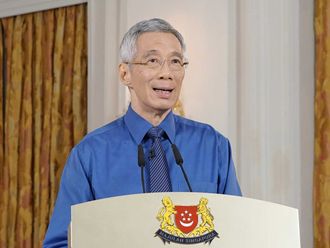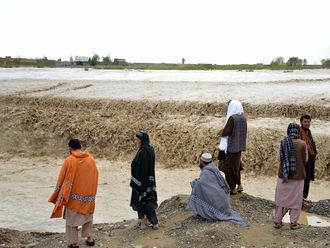BEIJING: China will form a powerful new competition and food safety regulator in a bid to ramp up oversight of mergers and acquisitions and price-fixing as the world’s second-largest economy seeks to make policymaking more efficient.
In much-anticipated plans to create seven new ministries and a raft of government agencies announced on Tuesday, one of the most significant changes is the creation of a national markets supervision management bureau.
The new body will decide on antimonopoly and pricing issues, replacing the competition oversight roles of the three national antitrust regulators: the National Development and Reform Commission (NDRC), the Ministry of Commerce and the State Administration for Industry and Commerce (SAIC).
The bureau “will undertake unified antitrust enforcement and standardise and safeguard market order”, among other duties, China’s State Council, or cabinet, said in a proposal submitted to the annual parliament session.
The proposal is certain to be approved before the session ends on March 20.
Chinese legal experts had said the division of antitrust oversight led to inter-agency competition and one-upmanship as each vied to implement the country’s 2008 Anti-Monopoly Law.
New agency
Reform of the regulators had long been discussed among antitrust officials, but the agencies proved resistant to the narrowing of their powers.
Adrian Emch, a partner and antitrust expert at Hogan Lovells in Beijing, said the overhaul would only have been possible in the context of a broader ministry shake-up, and that unifying the functions within a single powerful new agency could raise the profile of China’s competition policy.
“As in any organisation, there will be internal rivalries,” he said. “But this should avoid the turf wars to a large extent.” For years, foreign business lobbies have expressed consternation over China’s antitrust enforcement, saying it applied excessively broad national security considerations, and that regulators strong-armed companies into compliance or to give up intellectual property.
US industry groups have warned that antitrust could be used as a lever to hold up mergers or hit US companies with investigations in escalating trade frictions.
Ensuring quality
The restructuring comes as President Xi Jinping vowed to make the economy more responsive to market forces and shift to consumer-focused investment from a state-led model.
The new agency will also take control of most functions now performed by the General Administration of Quality Supervision, Inspection and Quarantine (AQSIQ) as well the China Food and Drug Administration.
The reform abolishes those two agencies, as well as the SAIC. AQSIQ’s role as quality controller for imports and exports will transfer to customs, the cabinet said in its proposal.
Experts say the changes are another sign the government wants to better coordinate regulation and enforcement of food safety, a hot-button issue after scandals in recent years involving contaminated milk powder and recycled cooking oil.
But even with the new structure, regulatory power may still be split, with the newly expanded Agriculture and Rural Affairs Ministry keeping charge of ensuring the quality of farm produce, said Erlend Ek, a Beijing-based agriculture and trade research manager at consulting firm China Policy.
“China is clearly on the way to creating a single (food safety) agency, but it’s not clear if they’ve done it now,” Ek said.












